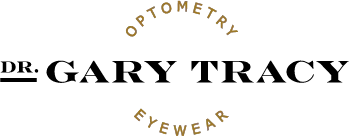Keep your eyes healthy
Eye Exam
Welcome to Dr. Gary Tracy Optometry & Eyewear, your one-stop destination for eye exams and exclusive eyeglass frames you can’t find anywhere else in our local community! Located near the Lincoln Center and the Beacon Theatre, we provide eye exams customized to your unique needs.
Eye Exam, New York, NY
Regular eye exams from an optometrist are a vital part of overall healthcare. These exams play a crucial role in preventing eye problems since not all conditions have obvious symptoms. By identifying and addressing these issues early on, we can ensure your vision remains clear and healthy. Additionally, regular eye exams can also reveal undiagnosed health issues unrelated to vision.
What do eye exams include?
Our eye exams go beyond just checking your vision. During your eye exam, our optometrist will perform a series of tests to evaluate your eye health and vision. Eye exams can include the following:
- A comprehensive vision exam
- Education on how to maintain healthy vision
- Screening for eye diseases or conditions
- Refractive tests to determine if prescription lenses are needed
- Creating a treatment plan to treat eye diseases or conditions
- Determining if specialized care is needed
How long does an eye exam take?
We understand that your time is valuable, and we strive to provide efficient and thorough care. On average, an eye exam at Dr. Gary Tracy Optometry & Eyewear takes approximately 30-45 minutes. This duration allows our optometrists to perform all necessary tests and assessments with precision.
After the exam is completed, our eye doctor will discuss the test results with you and recommend any necessary follow-up care or treatment options. Treatment options may include prescription glasses or contact lenses, eye drops or prescription medications, in-office procedures, or referrals to specialists if necessary.
Why are eye exams important?
Your eyes are your windows to the world. Regular eye exams play a vital role in:
- Detecting refractive errors (nearsightedness, farsightedness, astigmatism) to ensure clear vision.
- Identifying early signs of eye diseases, enabling timely treatment and prevention of potential vision loss.
- Monitoring any changes in your eye health and adjusting your prescription accordingly.
- Promoting overall eye health and preventing potential issues from worsening over time.
- Uncovering signs of other underlying health problems such as diabetes, high blood pressure, and even certain cancers.
How often should you get an eye exam?
As a general guideline, it is recommended to have a routine eye exam every one to two years, even if your vision seems fine. However, if you wear glasses or contact lenses, have a family history of eye diseases, or have any existing eye conditions, more frequent exams may be necessary. Patients 60 and older should have annual eye exams due to the increased risk of developing various eye diseases and conditions as they age.
Specialized eye exams
At Dr. Gary Tracy Optometry & Eyewear, we understand that each person has unique visual demands based on their lifestyles and professions. That’s why we offer specialized eye exams tailored to the specific needs of computer users, musicians, and athletes:
Specialized exam for computer users
Prolonged screen time can strain your eyes and lead to computer vision syndrome (also known as digital eye strain).
Learn More
Our specialized exam for computer users assesses visual ergonomics, blue light exposure, and proper prescription adjustments to enhance your comfort and productivity.
Specialized exam for musicians
Musicians rely heavily on their eyesight to read sheet music, play instruments, and perform on stage.
Learn More
We carefully consider the specific distance to the sheet music during the refraction process, ensuring that your glasses are tailored to your musical requirements.
Specialized exam for athletes
Athletes require sharp vision, quick reaction times, and excellent hand-eye coordination. Our specialized exam for athletes evaluates these aspects and offers….
Learn More
…personalized eyewear solutions that enhance sports performance and protect against potential eye injuries.
Schedule an eye exam in New York
Regular eye exams are an investment in your eye health and overall well-being. Schedule your appointment with Dr. Gary Tracy Optometry & Eyewear today to experience personalized care and find unique eyeglass frames that suit your style.
